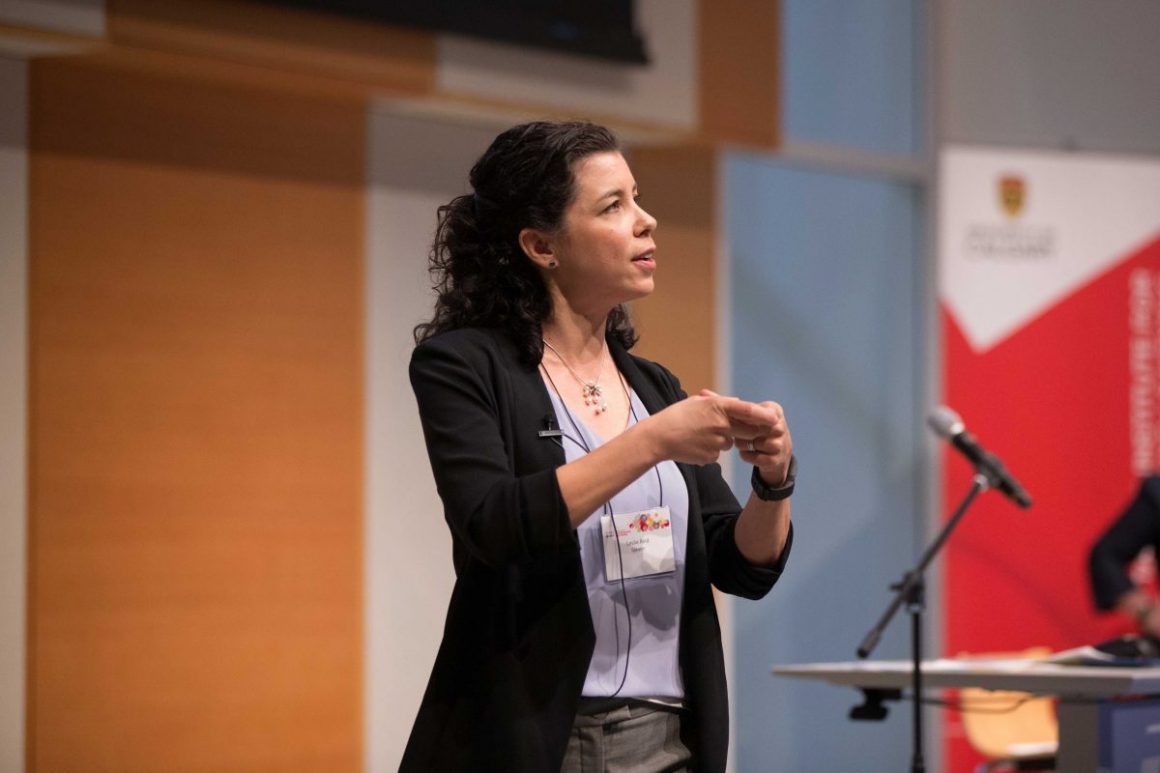
New U of C vice-provost talks making learning meaningful
By Tina Shaygan, February 16 2018 —
The University of Calgary appointed Leslie Reid as the vice-provost teaching and learning last December. We sat down with her to discuss what exactly her portfolio entails, her various teaching awards and what her priorities are for the coming year.
The Gauntlet: Thanks for being here today. How is your new role?
Leslie Reid: The new role is going really well. I like to say sometimes it’s rock and roll. It’s exciting. I’m on the steep part of the learning curve but I am loving the opportunity and feel pretty privileged to have this opportunity to support teaching and learning on campus.
Gauntlet: What is the job of vice-provost teaching and learning?
Reid: In a nutshell, it supports our campus community by enhancing our teaching and learning experiences for students, academic staff and everyone who is involved in learning on some level. How that happens is through different initiatives that fall onto the portfolio, like all of the teaching and learning experiences from the Taylor Institute — programs, they have a grants and awards program and all of that supports teaching and learning.
Other pieces of the portfolio include curriculum review and looking at the National Survey of Student Engagement data. There is really different breadths to the portfolio that focus on how are we doing as a campus community for teaching and learning and what we need to move forward.
Gauntlet: What interested you in this role, to begin with? What were your previous positions at the U of C?
Reid: I started here as a graduate student and I’ve stayed! There have been so many opportunities that have kept me here. I started as a graduate student and then found myself as an instructor in the geoscience department. I found myself move from a student to academic staff. From there, I had a series of opportunities that led me to be the first associate dean for teaching and learning in the Faculty of Science. I think that’s where I started really thinking deeply about teaching and learning leadership and really wanting to play a role in supporting our campus around teaching and learning.
Gauntlet: I know you’ve won multiple teaching awards, including some of the best in Canada. Do you miss teaching at all?
Reid: Yes! Although, I feel almost every day that there’s an opportunity to do the things that I love about teaching, which is really helping folks understand things about themselves or see things about themselves like strength and opportunities for growth. To me, that’s the essence of what I love about teaching and why I wanted a career in teaching — to be able to help folks learn something new and see things in themselves they might not see. Do I miss working with students? Yes, for sure. But I feel like I still get to do those things that I love and I’ve been able to do that in every role, even though every role that led me to this one has taken me out of the formal classroom teaching.
Gauntlet: What have been some of your favourite classes you taught at the U of C?
Reid: There’s a couple. As a field geologist by training, field schools were something that were just so much fun to teach and so much fun to see students learn. You can visibly see where people really make a deep connection between the stuff they hear about in the classroom to actually seeing it in front of them. And you get to go to fun places. Not only did you get to see folks learn but you got to experience a new adventure.
Gauntlet: Going back to your portfolio now, what are some of your priorities for your term?
Reid: There are a couple of things I’d really like to see happen. One is really helping each academic unit flourish in teaching and learning in ways that are meaningful to them. Each academic unit and each discipline has ways in which teaching and learning is really meaningful in their field. One thing I’d really love to see is we identify what those strengths are and make sure that everyone is supported in them. The other thing I would love to see flourish is the way in which we support folks teaching development. When I was a junior academic staff member, there wasn’t a lot of people to talk to about deep, thoughtful things. That’s changed dramatically with the associate deans of teaching and learning and the Taylor Institute and with departments and faculties talking about teaching and learning in meaningful ways. I’d like to see, though, those ways which we talk about teaching and learning start to be embedded in the processes on campus. For example, if an academic staff takes a lot of time to think and reflect on their teaching, I want to make sure that effort is recognized.
Gauntlet: You’ve mentioned the Taylor Institute a couple of times. What exactly does the Taylor Institute do?
Reid: The Taylor Institute for Teaching and Learning is a unit on campus that is really the heart of where the conversations about teaching and learning can be had. Another thing the Institute is known for is its classroom spaces. The building itself is spectacular and the people inside are spectacular. There is so much the building represents and offers because of the people in it.
Interview edited for clarity and brevity.
